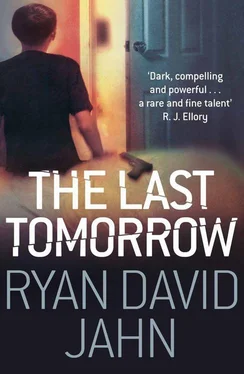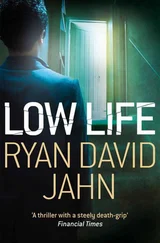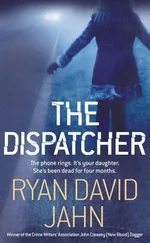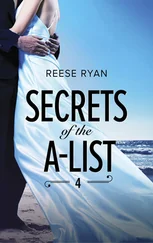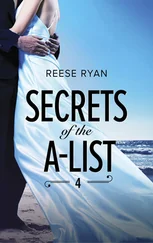Ryan Jahn - The Last Tomorrow
Здесь есть возможность читать онлайн «Ryan Jahn - The Last Tomorrow» весь текст электронной книги совершенно бесплатно (целиком полную версию без сокращений). В некоторых случаях можно слушать аудио, скачать через торрент в формате fb2 и присутствует краткое содержание. Год выпуска: 2012, ISBN: 2012, Издательство: Macmillan Publishers UK, Жанр: Триллер, на английском языке. Описание произведения, (предисловие) а так же отзывы посетителей доступны на портале библиотеки ЛибКат.
- Название:The Last Tomorrow
- Автор:
- Издательство:Macmillan Publishers UK
- Жанр:
- Год:2012
- ISBN:9780230766501
- Рейтинг книги:4 / 5. Голосов: 1
-
Избранное:Добавить в избранное
- Отзывы:
-
Ваша оценка:
- 80
- 1
- 2
- 3
- 4
- 5
The Last Tomorrow: краткое содержание, описание и аннотация
Предлагаем к чтению аннотацию, описание, краткое содержание или предисловие (зависит от того, что написал сам автор книги «The Last Tomorrow»). Если вы не нашли необходимую информацию о книге — напишите в комментариях, мы постараемся отыскать её.
The Last Tomorrow — читать онлайн бесплатно полную книгу (весь текст) целиком
Ниже представлен текст книги, разбитый по страницам. Система сохранения места последней прочитанной страницы, позволяет с удобством читать онлайн бесплатно книгу «The Last Tomorrow», без необходимости каждый раз заново искать на чём Вы остановились. Поставьте закладку, и сможете в любой момент перейти на страницу, на которой закончили чтение.
Интервал:
Закладка:
Sandy leans over him and punches him in the nose. It sends a sharp pain up his arm from his hand, from the backs of his fingers. It hurts terribly, but the pain feels good too. He punches again. Raymond holds out his hands to block the blows, but Sandy shoves them aside with the swipe of an arm and swings again. He can see blood on Raymond’s face now, and he’s glad of it. He doesn’t feel guilt or remorse or anything like empathy. He feels mad glee. His fist is simply screaming with pain, and he’s glad of that too. The pain in his hands is pain inflicted as well.
‘I told you to leave me alone,’ he says, and swings again, and again, and again, until the hall monitor comes rushing in and pulls him off the other boy, and even then he continues swinging at the empty air in front of him.
2
He sits in a chair just outside an office, Raymond beside him with wads of blood-slicked tissue shoved into nostrils and a bruise swelling around his left eye.
His hands are clasped in his lap, the right one throbbing with pain. He likes the sensation. It reminds him that he’s done something. He pulls his hands apart and looks at his knuckles, his middle finger swollen and blue, so swollen he can barely bend it. He likes that too.
It felt good to do what he did to Raymond. It felt good to give something back.
He’s done being picked on. Done being a receptacle for other people’s violence.
He thinks of how he felt the night he killed his stepfather, the night he put two bullets into his stepfather’s head, how he wanted to take it back. He no longer wants to take it back. He’s glad his stepfather’s dead. He still wishes he could have kept what he did from his mother. It still hurts him to see that anger, and that small hatred, in her eyes. But he’s glad his stepfather’s dead. Even on that night he only wanted to take it back because he was afraid of getting caught. Even then he didn’t regret the loss of life.
He hated the man. He hated him and is glad he’s dead.
From now on he’ll only pour violence out.
When he goes into the principal’s office he’ll say he’s sorry. He’ll say it won’t happen again. He’ll say those things, but he’ll be lying.
There was a time when he was confused, but things in the last week have helped him to understand the world in a way he didn’t before. He feels like he’s been given a glimpse at the machinery of the world, all the gears and pulleys and levers and belts.
There was a time when he saw everything as a threat, as potential pain, and tried to avoid it at all cost. He would ditch school so he wouldn’t have to face a teacher who hated him, or a classmate who had been picking on him. He hid from his stepfather, cowering in fear.
Even when he came here he was thinking only about how to avoid being noticed, how to avoid being picked on. He was thinking only of how to become and remain invisible. But that doesn’t work, he sees that now.
If you try to disappear the world sees a hole where you should be and pours its rage into you, pours its violence into you, in order to fill that hole.
He glances to his left, to where Raymond is sitting. The boy is staring down at his lap. His eyes are red from crying.
Sandy’s glad.
A door opens and a heavy-set man in a wrinkled suit stands on the other side of it. He has thin, finger-combed white hair, a cowlick at the back of his head. His eyes are turned down at the corners. His nose is red and bulbous. His fly is open, his wrinkled blue shirt hanging from it, and there are ink stains on his slacks.
‘Mr Duncan,’ the man says.
Sandy gets to his feet and walks toward the office, preparing to lie. For here’s a fact: you can say you’re sorry and feel nothing at all.
TWENTY-SEVEN
1
Carl drives through the rain while his windshield wipers cut water off the glass, squeaking with each swipe of their thin rubber blades, clearing his view of the empty street before him. He thinks about Eugene Dahl, the milkman, and the evidence against him. He was at the scene with the murder weapon in his possession. They searched his apartment and found bloody shoes that matched shoeprints tracked all over the room in which Stuart and that cop were killed. They also found a box of bullets and a blackmail note. Cases don’t get much tighter than that.
During their brief encounter he didn’t strike Carl as the kind of man who’d be able to cold-bloodedly sever a man’s spinal cord with a knife, but in this situation that’s less important than where the evidence points. People, everyday people, can be surprising in their brutality.
Carl would like it better if they knew who tipped off the police, and he’d like to get his hands on the typewriter used to bang out the blackmail note, but those are insignificant pieces in this otherwise finished puzzle, corner pieces that won’t change the overall image even if he finds them. Maybe the milkman told someone his plans while drunk and that someone called the police before the murders even happened. Maybe the accountant had an accomplice who typed up the blackmail note and delivered it. Those things don’t matter. There’s simply no way the milkman didn’t do the murders. Not a chance. The pieces fit together too well for them to go any other way.
He parks the car in front of Friedman’s house and gives the horn two quick taps. He lights a cigarette and takes a deep drag. He rubs at his eyes with the heels of his hands. They’re dry and they sting.
Friedman steps into the car and slams the door closed behind him.
‘Ready?’
‘Ready.’
Carl puts the car into gear.
2
They step from the vehicle. Carl flicks his cigarette butt into the gutter. He squints up at the gray clouds overhead, bulbous and seemingly solid as mountains. Rain splashes against his face. It feels good on his hot skin. He takes off his fedora and combs his fingers through his oily but brittle gray hair. He turns to the door and finds his partner already pushing his way through to the interior. He follows.
As soon as the door closes behind them the outside world ceases to matter. The bar feels like its own dimly lit pocket universe. The world outside could be crumbling in a great earthquake, streets opening up, fires blazing — but here that would mean nothing. Grab a stool and get yourself a drink, friend.
Several patrons sit at tables nursing their cocktails, several more sit at the bar. Mostly they’re old men of retirement age or older in moth-eaten cardigan sweaters and clip-on ties, men with rheumy red eyes and sagging faces like overloaded trash bags, filled with regrets. There are also a couple younger men in rags present, men spending their unemployment insurance on drink. And a woman in her late thirties, a redhead with a flushed face that would be beautiful if not for the damage years of hard drinking and heavy smoking have done to it, sitting at a table with a man in a blue mechanic’s jumpsuit and a greased duck-butt hairstyle.
They all make a point of not looking at the two newcomers.
Carl puts his hands in his pockets, pushing open his jacket so the barkeep is sure to see the badge clipped to his belt, and walks to the bar. Friedman walks beside him.
The barkeep, a heavy-set fellow with a white shirt stretched over his substantial belly, nods at them while drying off a glass and setting it on a metal drainer.
‘You guys drinking?’
Friedman shakes his head. ‘I don’t drink.’
‘And I’m on the clock.’
‘Then what can I do for you?’
‘You can tell us about Eugene Dahl.’
‘Never heard of him.’
‘He’s a regular here.’
‘News to me.’
Friedman pulls a sketch from his pocket and unfolds it.
‘You know him.’
‘I might’ve seen him a time or two.’
Читать дальшеИнтервал:
Закладка:
Похожие книги на «The Last Tomorrow»
Представляем Вашему вниманию похожие книги на «The Last Tomorrow» списком для выбора. Мы отобрали схожую по названию и смыслу литературу в надежде предоставить читателям больше вариантов отыскать новые, интересные, ещё непрочитанные произведения.
Обсуждение, отзывы о книге «The Last Tomorrow» и просто собственные мнения читателей. Оставьте ваши комментарии, напишите, что Вы думаете о произведении, его смысле или главных героях. Укажите что конкретно понравилось, а что нет, и почему Вы так считаете.
